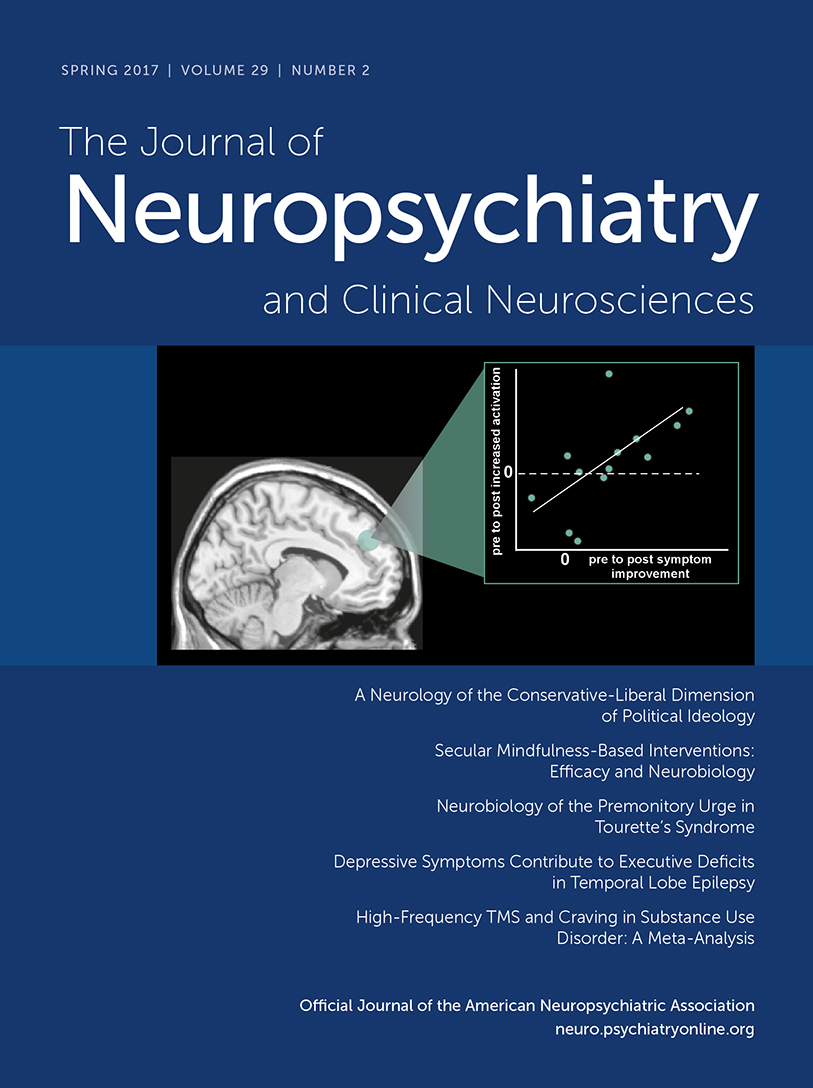A Neurology of the Conservative-Liberal Dimension of Political Ideology
Abstract
Differences in political ideology are a major source of human disagreement and conflict. There is increasing evidence that neurobiological mechanisms mediate individual differences in political ideology through effects on a conservative-liberal axis. This review summarizes personality, evolutionary and genetic, cognitive, neuroimaging, and neurological studies of conservatism-liberalism and discusses how they might affect political ideology. What emerges from this highly variable literature is evidence for a normal right-sided “conservative-complex” involving structures sensitive to negativity bias, threat, disgust, and avoidance. This conservative-complex may be damaged with brain disease, sometimes leading to a pathological “liberal shift” or a reduced tendency to conservatism in political ideology. Although not deterministic, these findings recommend further research on politics and the brain.



